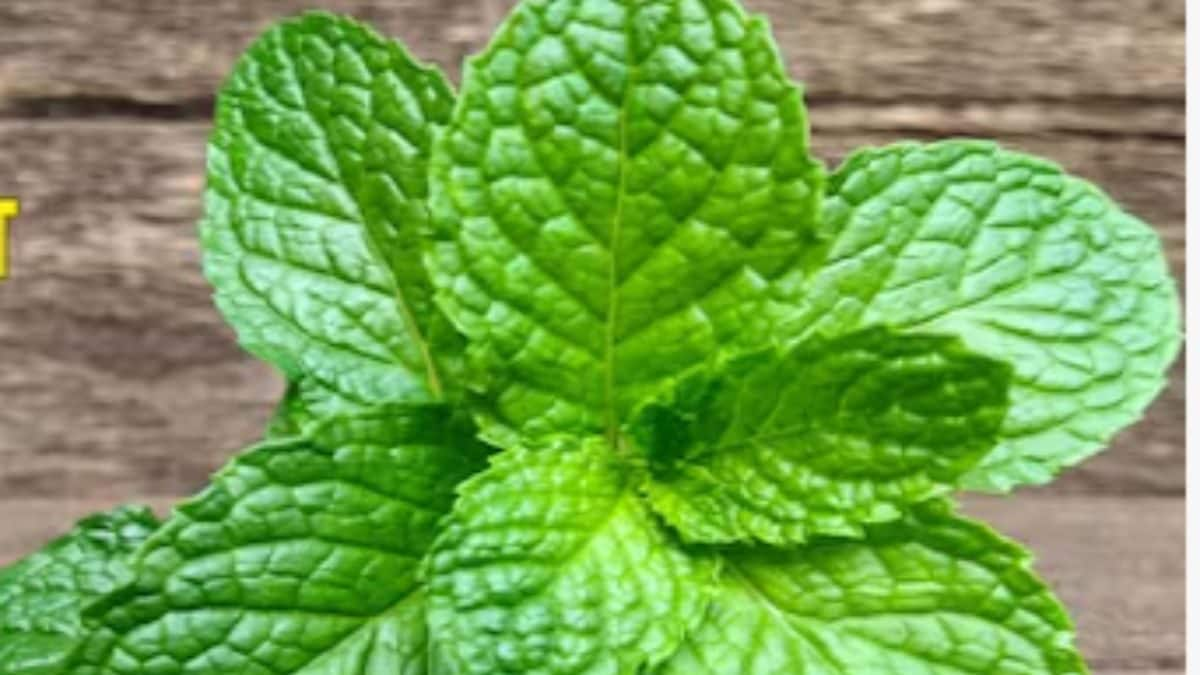Mint leaves, or pudina, are more than just an aromatic and delicious garnishing ingredient found in every Indian kitchen. It is one of the oldest herbs, grown all around the world, and used in a wide range of dishes — be it chutney, fruit salads or raita. But are you aware that beyond their delightful aroma and taste, mint leaves offer a surprising array of health benefits? Packed with essential nutrients and compounds, these leaves have been valued for centuries for their medicinal properties. From digestive aid to stress reliever, mint leaves can be a powerful addition to your daily routine. Let’s dive into some health benefits of consuming mint leaves:
Helps In Digestion
Mint leaves are known for their ability to soothe the stomach and aid in digestion. Their properties make them a natural remedy for various digestive issues.
How Mint Helps With Digestion
- Reduces Bloating and Indigestion: Mint leaves contain menthol, which has anti-spasmodic properties. These properties help to relax the muscles of the digestive tract, relieving bloating and gas.
- Calms an Upset Stomach: Mint leaves have anti-inflammatory properties that help soothe the lining of the stomach, reducing discomfort caused by an upset stomach.
- Promotes Regularity: The fibers in mint leaves can aid digestion by promoting regular bowel movements.
How to Use Mint For Digestive Issues
- Mint Tea: Add fresh mint leaves to your tea and sip the beverage either before or after meals. The warmth of the tea helps to relax the stomach muscles and enhance the calming effect of the mint.
- Boiling Water: Simmering fresh mint leaves in boiling water for five to ten minutes and drinking the infusion can also provide relief from stomach issues.
Help Lose Weight
Mint leaves can play a role in supporting weight loss efforts due to their properties.
How Mint Can Support Weight Loss
- Low in Calories, High in Fiber: Mint leaves are low in calories but high in fiber, making them a great addition to your diet. Fiber helps you feel fuller for longer, reducing the chance of overeating.
- Aids Digestion and Metabolism: The compounds in mint leaves promote digestion and can help with the metabolism of fats.
Ways to Incorporate Mint for Weight Loss
- Salads: Add fresh mint leaves to your salads to add flavor and boost fiber content.
- Smoothies: Blend mint leaves into your smoothies for a refreshing and healthy drink.
- Detox Drinks: Add mint to detoxifying drinks to help cleanse your body.
Relieves Stress
The aromatic scent of mint is known for its calming effects.
How Mint Helps With Stress
- Relaxing Properties: Mint has adaptogenic properties that help to regulate cortisol levels, the stress hormone.
- Cooling Effect: Mint’s cooling effect can relax the body and mind, providing stress relief.
How to Use Mint For Stress Relief
- Aromatherapy: Inhaling the scent of mint oil can be calming and provide stress relief.
- Tea: Sipping on mint tea can induce a sense of relaxation and calmness.
Improves Skin Health
The anti-inflammatory and anti-bacterial properties of mint leaves can make them a valuable ingredient for healthy skin.
How Mint Benefits Your Skin
- Acne and Inflammation: The salicylic acid in mint leaves helps to unclog pores, reduce acne, and minimize inflammation.
- Calming and Soothing: Mint’s anti-inflammatory properties help to soothe irritated skin and reduce redness.
Ways to Use Mint For Your Skin
- Facial Masks: Create a face mask with crushed mint leaves to cleanse, refresh, and calm your skin.
- Topical Application: Apply a paste made from crushed mint leaves directly to acne or inflamed skin.
Common Cold
Mint is often used to relieve symptoms associated with the common cold, such as congestion and a sore throat.
How Mint Helps With Cold Symptoms
- Decongestant: Mint can help clear congested sinuses and airways.
- Sore Throat Relief: Sipping on mint tea can soothe a sore throat.
How to Use Mint For Cold Relief
- Steam Inhalation: Inhaling steam from boiled mint leaves can help open airways and reduce congestion.
- Mint Tea: Drink mint tea to alleviate congestion, soothe a sore throat, and clear the airways.
Boosts Immunity
Mint leaves are a source of vitamin C, a powerful antioxidant that supports immune function.
How Mint Contributes to Immunity
- Vitamin C: Mint provides vitamin C, which is essential for boosting the immune system and protecting the body against infections.
How to Use Mint for Immunity
- Daily Consumption: Incorporate mint into your daily routine by drinking mint water or tea.
Take Away Points
- Mint is a versatile herb with numerous health benefits, including digestive support, weight management, stress reduction, improved skin health, cold symptom relief, and immune boosting properties.
- Incorporating mint into your diet can be as simple as adding fresh leaves to your salads, smoothies, tea, or water.
- Use mint in its various forms, such as fresh leaves, oil, or tea, to reap its benefits.
- Always consult with your healthcare provider before making any significant changes to your diet or lifestyle, especially if you have any underlying health conditions.




